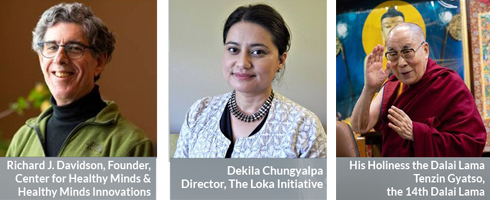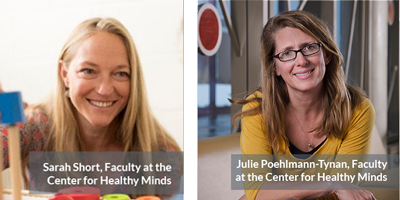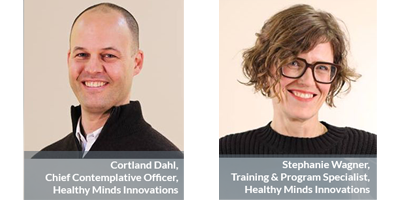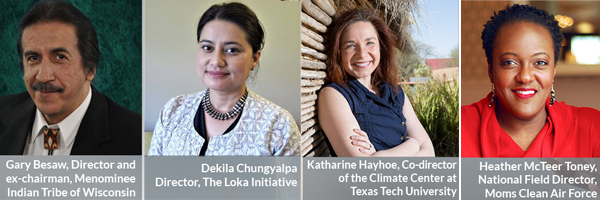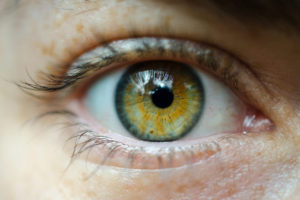In this moment of stress from the COVID-19 pandemic, racial and civil unrest, and environmental disasters, many are calling for a reimagining of personal and public life that is more just, health-promoting and sustainable.
At the University of Wisconsin–Madison’s Center for Healthy Minds, researchers continue to pursue the science of well-being, sharing knowledge and guidance to help people manage their stress and emotional health during times of hardship.
That’s why the Center, along with its external, affiliated nonprofit Healthy Minds Innovations, is offering a week-long series of free virtual events to share the latest science, well-being tips and the opportunity to hear from mental health experts and leaders, including a recorded dialogue with His Holiness the Dalai Lama.
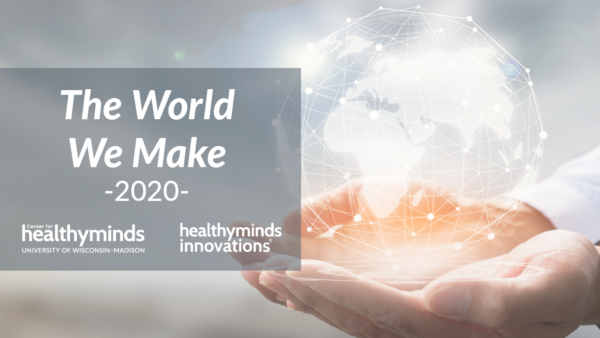
The World We Make 2020, taking place Oct. 5-9, 2020, poses the questions: How can our actions today sow the seeds for a better tomorrow? What future world are we making in this moment, and how can we each play a role in improving the trajectory?
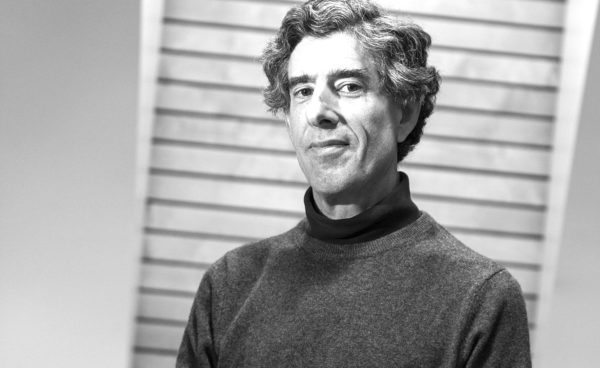
“It’s about tapping into our own resilience and that of our communities to reimagine a better future – one that’s kinder, wiser and more compassionate,” says Richard Davidson, founder and director of the UW’s Center for Healthy Minds and Healthy Minds Innovations. “For me, this challenge is more important than ever, with the pandemic, racial injustice, climate change and our country’s political division.”
The virtual event will be freely available to anyone who can watch online. It will feature Center research and raise awareness of the importance of emotional well-being in our current climate.
Experts from UW–Madison and across the country will explore everything from the neuroscience of the mind-body connection to childhood development and workplace well-being for educators.
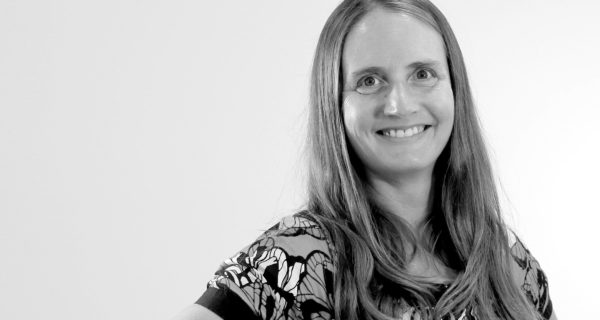
For instance, on Oct. 5, Davidson and UW–Madison Assistant Professor of Psychiatry Melissa Rosenkranz will give a presentation on the plasticity of the mind, brain and body.
Well-being experts, educators and leaders from the Madison Metropolitan School District — including Tamar Jacobsohn, Jennifer Jones, Ana Salcido, and Sylla Zarov — will share their experiences on wellness at work on Oct. 7.
And on Oct. 8, Texas Tech University’s Katharine Hayhoe will join other experts — including Gary Besaw, director of the Department of Agriculture and Food Systems and the ex-chairman of the Menominee Indian Tribe of Wisconsin — to talk about the intersection of resilient minds and a resilient planet.
At the final event of the series on Friday evening Oct. 9, Davidson, along with the Center’s Loka Initiative Director Dekila Chungyalpa, will air an exclusive pre-recorded video interview and words of wisdom from His Holiness the Dalai Lama.
Davidson and the Dalai Lama have collaborated for decades after His Holiness challenged Davidson to use modern science to study positive qualities of mind in addition to common mental health disorders. That ultimately led Davidson to found the Center for Healthy Minds 10 years ago.
The Dalai Lama, who took part in the conversation with Davidson over Zoom from Dharamsala, India, reflects on how humanity should come together during hardship and explores what new frontiers of the mind researchers could focus on.
For additional information, including speakers and full event descriptions, visit go.wisc.edu/twwm2020
-Marianne Spoon
The Plasticity of Mind, Brain & Body
Originally aired on Monday October 5, 2020.
Cutting-edge science suggests that meditation can have profound and lasting effects on our brains and behavior. But how? Scientists at the Center for Healthy Minds at the University of Wisconsin–Madison have spent years understanding the impact of contemplative practices on the mind and body. Neuroscientist and Center for Healthy Minds Founder Richard J. Davidson and Center Faculty Melissa Rosenkranz explore a decade of scientific discoveries that set the foundation for healthier societies and how we can each take care of our own mind. Read more about this event.
Event Speakers
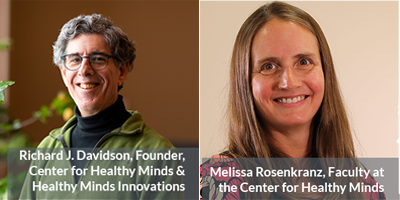
The Developing Mind
Originally aired on Tuesday October 6, 2020.
COVID has put a large portion of the global population at risk of falling into poverty or multiplying the threats posed by poverty. We know it is most often the people who are struggling with poverty who also bear the trauma from other challenges like those posed by systemic racism. How can we best support our children and next generation in their well-being in these circumstances? While scientists do not understand all of the mechanisms yet, there are some actions that parents can take to support their children and that we as a society can take to support parents, caregivers and children struggling with the challenges of poverty. Learn more about ways to nurture the development of healthy minds and hearts in our children from child development experts and Center for Healthy Minds Faculty Members Sarah Short and Julie Poehlmann-Tynan. Read more about this event.
Event Speakers
Well at Work: Strategies From Research to the Real-World
Originally aired on Wednesday October 7, 2020.
What does it mean to be well at work, especially in the age of COVID? Join scientists and experts at Healthy Minds Innovations, the nonprofit affiliated with the Center for Healthy Minds that turns science into action through accessible tools, for a fascinating discussion to gain real-world skills to manage your well-being in the workplace, wherever that might be. In this recorded video you will get take-aways from working with companies and organizations across the country to boost well-being in their workplaces, a guided practice, and host a panel with representatives from one of our first pilot programs, teachers (and leaders) from local partner, the Madison Metropolitan School District (MMSD). Read more about this event.
Event Speakers
MMSD Panelists

Resilient Minds, Resilient Planet
Originally aired on Thursday October 8, 2020.
How does our inner resilience and well-being reflect that of our communities and of our physical environment and planet? Large-scale injustices such as racism, gender inequity and lack of equal rights for marginalized people not only erode our individual and collective health and spirit, but are also destructive to the planet. In this recorded event, Dekila Chungyalpa, Director of the Loka Initiative at the Center for Healthy Minds, and speakers Gary Besaw, Heather McTeer Toney, and Katharine Hayhoe explore how vulnerability can transform into strength and how internal, community and environmental resilience are all necessary for each one of us to thrive. Read more about this event.
Event Speakers
Change Your Mind, Change the World, A Recorded Dialogue with His Holiness the Dalai Lama
Originally aired on Friday October 9, 2020.
How can something as simple as training your mind change the world? His Holiness the Dalai Lama, shares insight and some unexpected answers about these questions in a conversation recorded exclusively for this event. World-renowned neuroscientist and best-selling New York Times author Richard J. Davidson and Dekila Chungyalpa, an expert in intersections of faith and science at the Center for Healthy Minds' Loka Initiative, will further explore the dialogue and explain his insight. Davidson and the Dalai Lama met in Dharamsala, India in 1992 and their long-time friendship and collaborations on the effects of mental training have led to groundbreaking discoveries and insights to create a kinder, wiser, more compassionate world. Read more about this event.
Event Speakers
